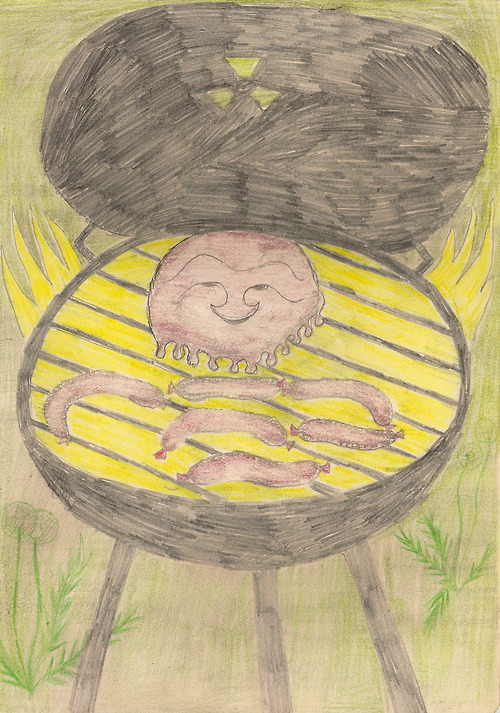 |
| Waking lion from Eisenstein's Battleship Potemkin (1925) |
4.10.13
29.9.13
We are not the ones using obscure language: intellectuals in Godard's La Chinoise
24.9.13
Emergency Currency
I get excited about banknotes but more exciting than official banknotes are emergency banknotes. From the days when Germans used wheelbarrows as purses:
"Notgeld (emergency currency) was issued by cities, boroughs, even private companies while there was a shortage of official coins and bills. Nobody would pay in coins while their nominal value was less than the value of the metal. And when inflation went on, the state was just unable to print bills fast enough. Some companies couldn't pay their workers because the Reichsbank just couldn't provide enough bills. So they started to print their own money - they even asked the Reichsbank beforehand. As long as the Notgeld was accepted, no real harm was done and it just was a certificate of debt. Often it was even a more stable currency than real money, as sometimes the denomination was a certain amount of gold, dollars, corn, meat, etc."
These are all from the flickr site of Miguel Oks.
(Thanks to Michael Shick for sending these my way).
10.8.13
Whole Earth to Whole Foods
My growing collection of tracts and manuals from the yippie and intentional communities movements from the seventies was recently entered into a Rare Book Competition at Duke. My collection, most of which I'd picked up in used book-shops, included Jerry Rubin’s Do it! (1970), Viktoras Kulvinskas’ paranoiac Survival into the 21st Century (1975) Robert de Ropp’s meticulously detailed homesteading manual, Eco-Tech (1975), and of course Stuart Brand’s meta-database The Whole Earth Catalog (1971) which is currently the conceit for a great exhibition curated by Diedrich Diederichsen and Anselm Franke at the Haus der Kulturen der Welt.
In my statement I wanted to explain my appeal for these books, describing my interest in the "how-to" manual as a genre. As the ancestor of the homesteading manual and the precursor of the DIY zine (or now, more generically, about.com) the "manual" quite radically cuts out the middle-man and the expenses of training.
However, I also wanted to show the other secret attraction of these books, which is that the manual also allows for the formation of an alternative identity, functioning as an aide in self-actualization/ transformation.
Ironically, it is to this very radical movement of intentional communities that we owe the greenwashed environmentalism of today. I stressed that perhaps the manuals were almost too effective, and that eventually, the radical subjectivities associated with the intentional communities movement were commodified, its fonts and design sensibilities were raided. The middle man was brought back into the picture, not as Whole Earth but as "Whole Foods".

9.6.13
25.5.13
20.3.13
Subscribe to:
Posts (Atom)









